Syria war: Eastern Ghouta medical evacuations begin
- Published
Critically ill children are evacuated from the rebel-held Eastern Ghouta, outside Damascus
Medical evacuations are taking place from a rebel-held area on the outskirts of the Syrian capital, Damascus.
Four critically-ill patients were taken out of the Eastern Ghouta overnight by the International Committee of the Red Cross and Syrian Arab Red Crescent.
Another 25 should be evacuated in the coming days as part of a deal agreed by the government and rebels, though hundreds more are in need of treatment.
Some 400,000 residents have been under siege by government forces since 2013.
The Eastern Ghouta has been designated a "de-escalation zone" by Russia and Iran, the government's main allies, along with Turkey, which backs the opposition.
But hostilities intensified six weeks ago, when the Syrian military stepped up air and artillery attacks on the enclave in response to a rebel offensive, reportedly killing dozens of civilians.
There are also severe shortages of food, fuel and medicines, and the cold winter weather is threatening to worsen the hardship.
The Syrian Arab Red Crescent (SARC) announced early on Wednesday that medics had started to transfer patients from the Eastern Ghouta "after long negotiations".
Allow X content?
This article contains content provided by X. We ask for your permission before anything is loaded, as they may be using cookies and other technologies. You may want to read X’s cookie policy, external and privacy policy, external before accepting. To view this content choose ‘accept and continue’.
It gave no further details, but the International Committee of the Red Cross (ICRC) later confirmed that four people with critical medical conditions had been taken with their families to hospitals in Damascus, and that it hoped that a total of 29 people would be evacuated "over the coming few days".
"The operation is clearly a positive step that will give some respite to the people in Eastern Ghouta, especially those who are in dire need of life-saving medical treatment," spokeswoman Anastasia Isyuk told the BBC.
"We hope this medical evacuation will only be the beginning of more to come, as there many more people in need. It is also vital for humanitarian organisations to reach people in Eastern Ghouta with aid on a regular basis and without conditions."

The Syrian American Medical Society (SAMS), a medical relief organisation that supports hospitals in rebel-held Syria, said the 29 patients included 18 children and four women suffering from heart disease, cancer, kidney failure, and blood diseases, external. The seven other patients require advanced surgery.
SARC official Ahmed al-Saour told AFP news agency that the first four patients to be evacuated were "a girl with haemophilia, a child with Guillain-Barré syndrome, a child suffering from leukaemia, and a man in need of a kidney transplant".
The main rebel group in the Eastern Ghouta, Jaysh al-Islam, meanwhile said on Twitter that the government had agreed to the evacuations in exchange for the release of 29 of its prisoners.
Allow X content?
This article contains content provided by X. We ask for your permission before anything is loaded, as they may be using cookies and other technologies. You may want to read X’s cookie policy, external and privacy policy, external before accepting. To view this content choose ‘accept and continue’.
Last week, the UN's humanitarian co-ordinator for Syria, Jan Egeland, said 494 people were on the priority list for medical evacuations submitted in November.
"That number is going down, not because we are evacuating people but because they are dying," he said. "We have tried now every single week for many months to get medical evacuations out, and food and other supplies in."
Children in the rebel-held Eastern Ghouta are among those suffering
Mr Egeland said the UN had been waiting for the Syrian government to provide "facilitation letters" to allow ambulances and aid convoys into the Eastern Ghouta.
SAMS said the area's medical infrastructure had been "decimated" by the government's siege and bombardment, and that only 107 doctors remained there to provide care for an estimated 130,000 children and 270,000 adults while facing a severe shortage of medical supplies.
Recently, the UN reported that the rate of malnutrition in children under the age of five had increased to 11.9% - five or six times what was reported in January, and the highest so far recorded in the country since the civil war began in 2011.
- Published21 December 2017
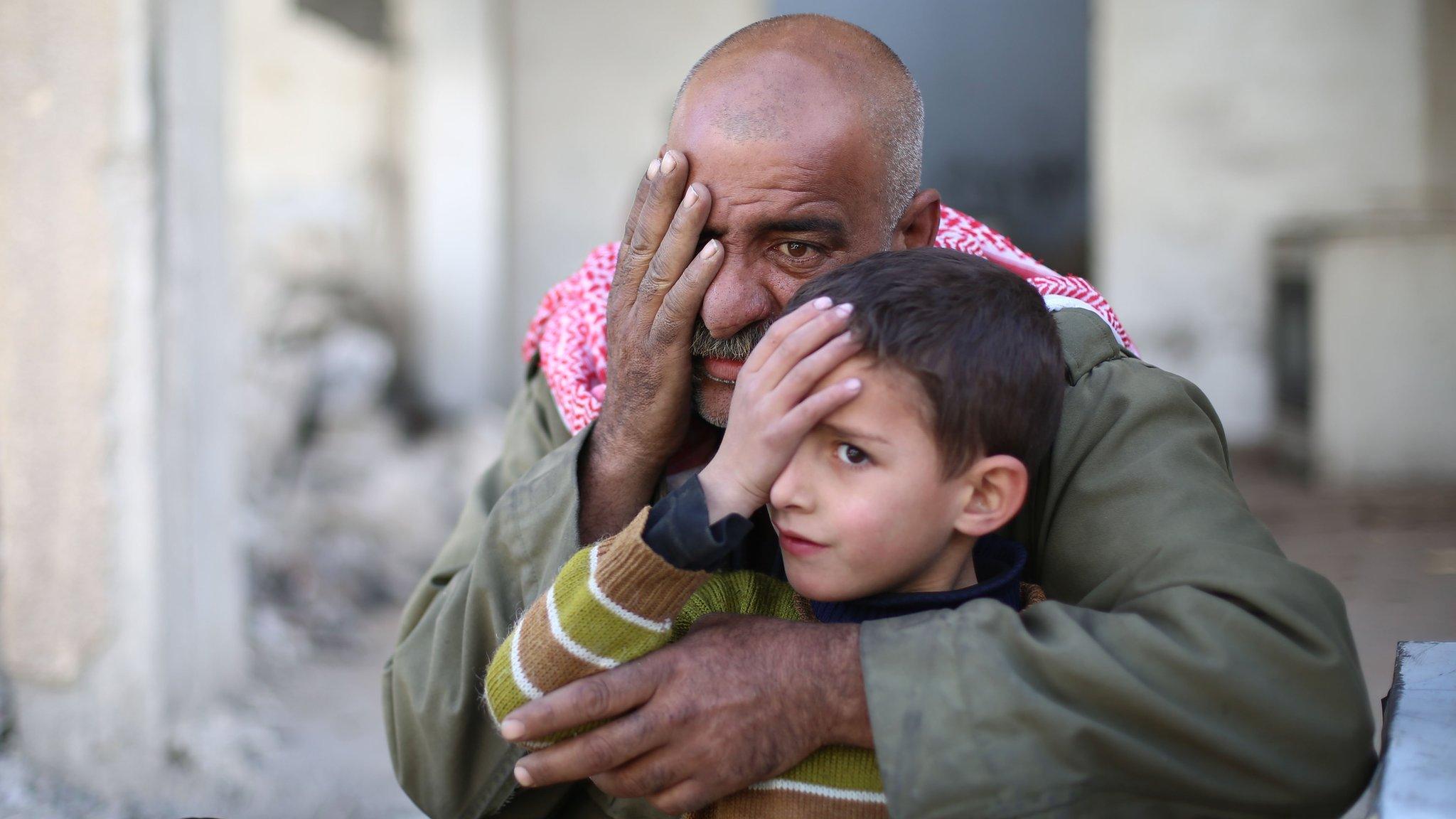
- Published23 December 2017
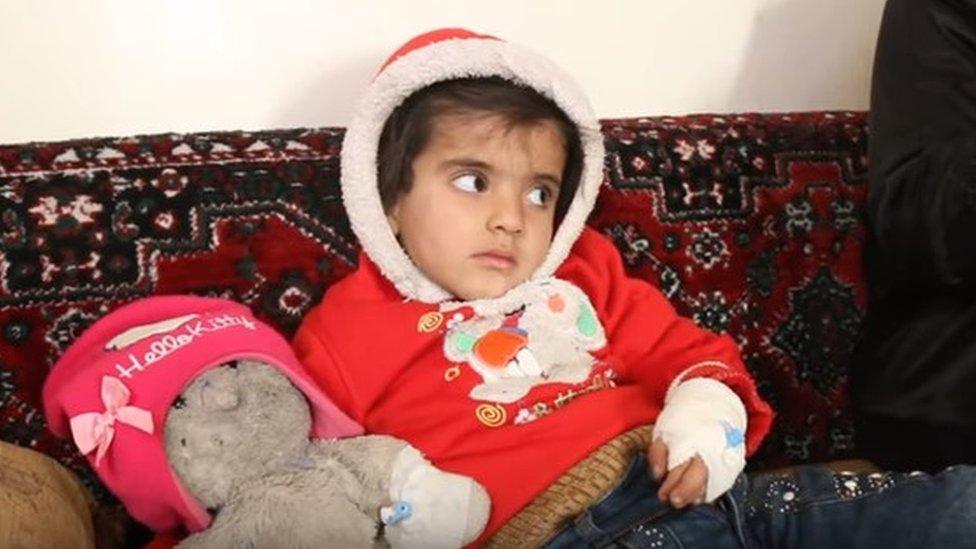
- Published18 December 2017
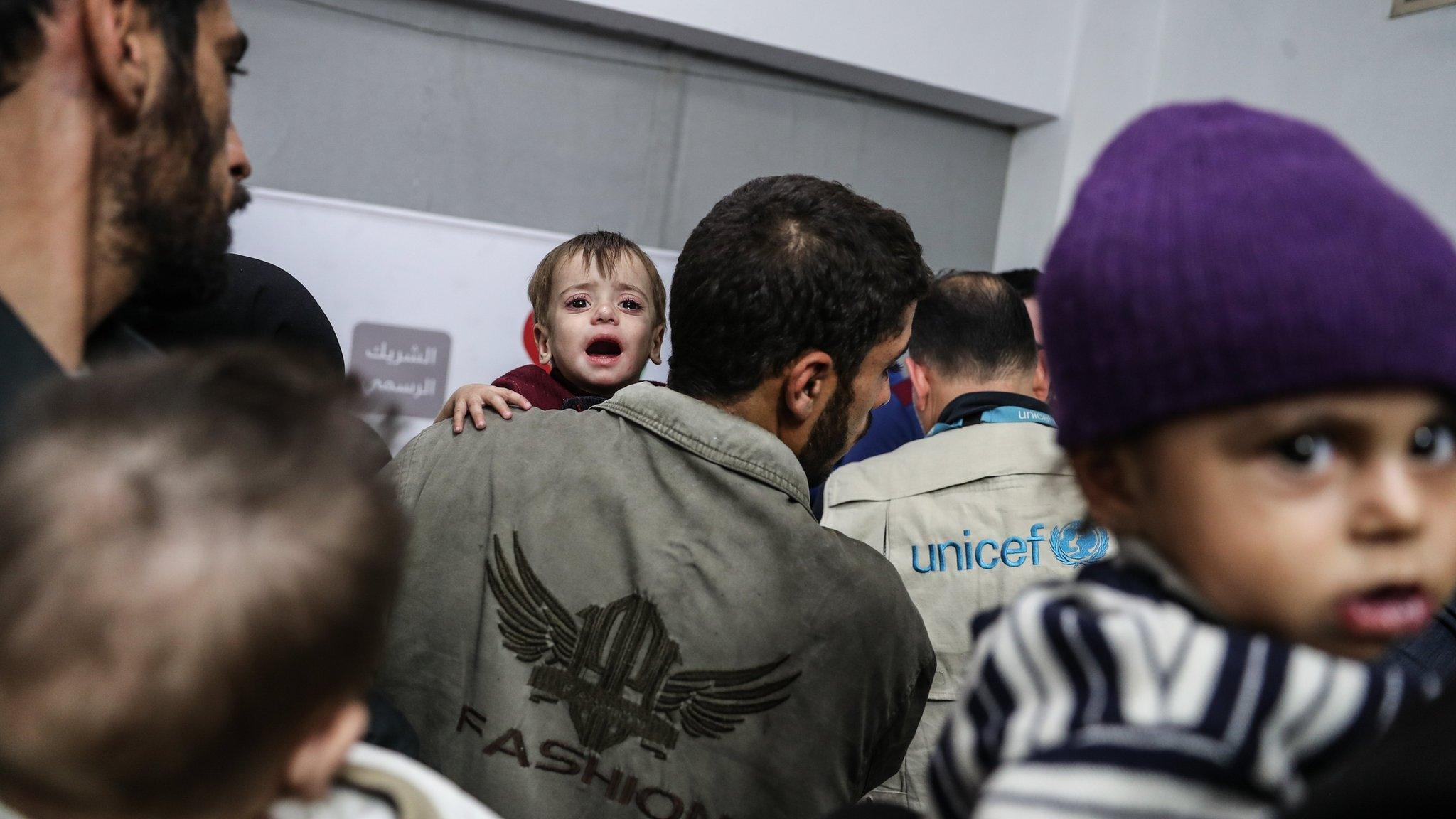
- Published7 December 2017
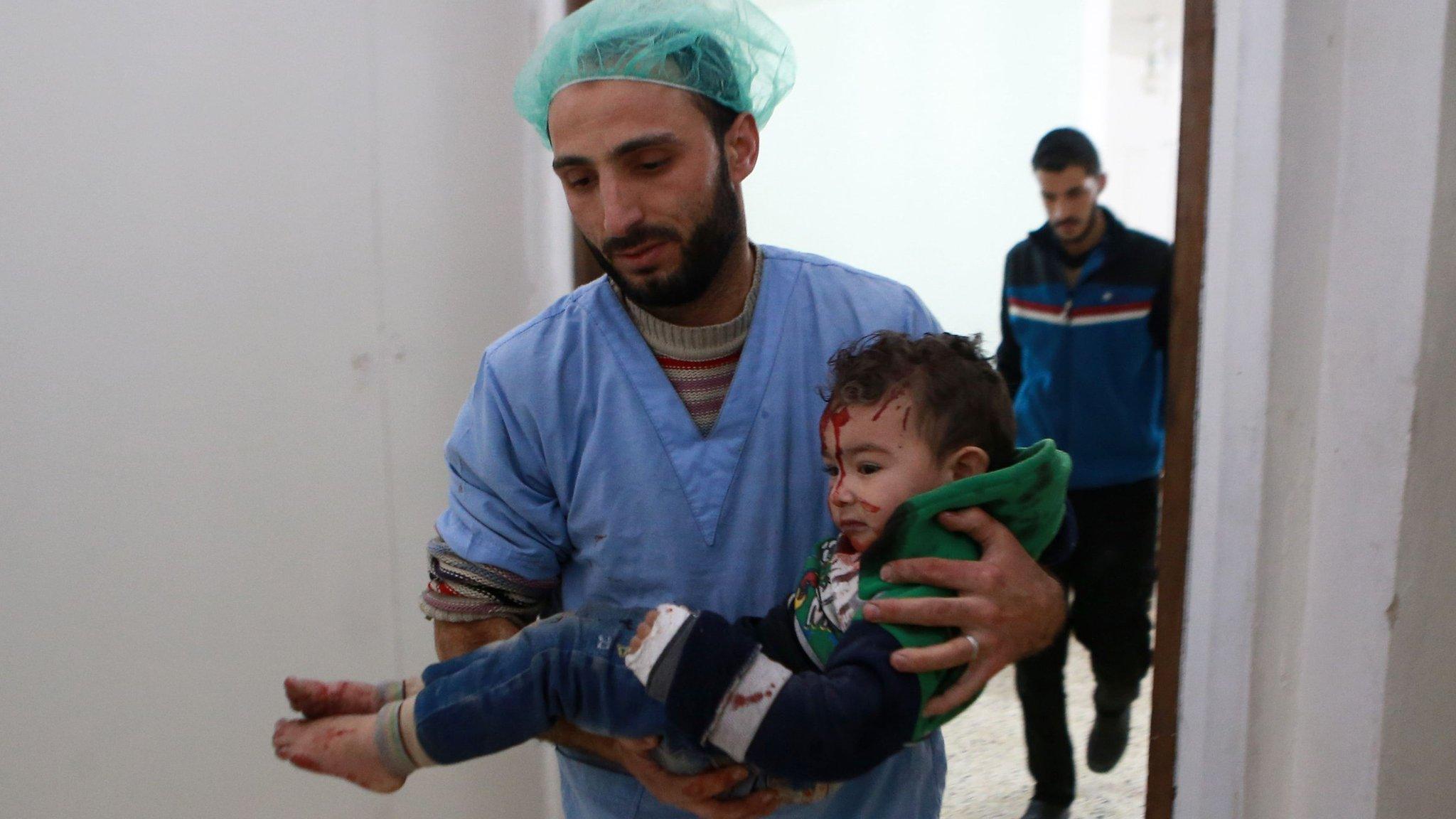
- Published26 November 2017
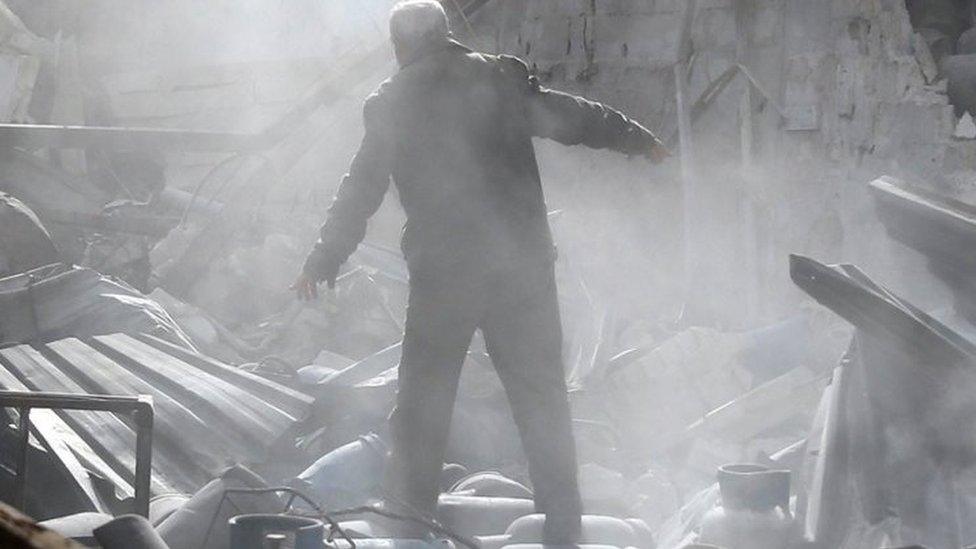
- Published27 November 2017
- Published2 May 2023
